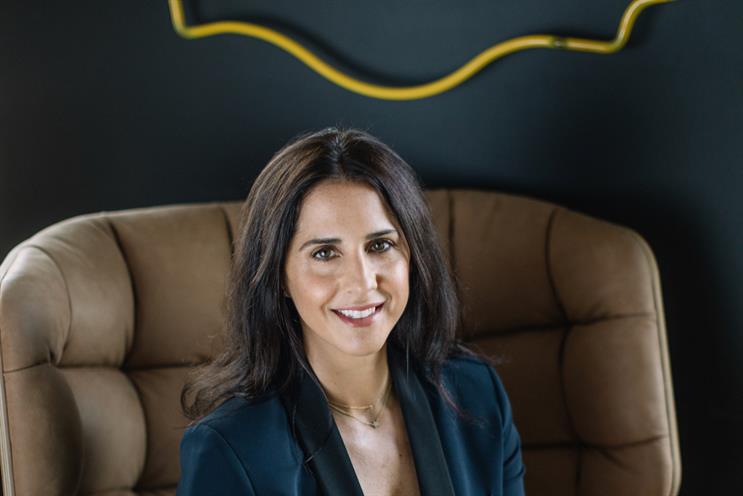Even before the pandemic it was clear that the business landscape was shifting dramatically. The pace of change – largely accelerated by digital – is one part of the story, but the other is the evolution in how businesses see their role in society and what their customers expect from them.
In this new world, traditional business ideologies have been upended. The personal and the corporate are no longer clearly delineated; brands can’t be neutral and must stand up and be counted when it comes to difficult social conversations; and the customer and community are at the heart of the problem-solving process – not passive, peripheral participants.
I recently spoke to several chief executives and founders for a series of interviews called the "Positive Disruptor". In each case these were businesses that are progressively disrupting their sectors – much like Snap’s founders Evan Spiegel and Bobby Murphy did when they came up with an antidote to traditional social media.
We need to reclaim disruption – if done right – as a positive force. There are too often negative connotations despite the fact that change is a fundamental part of doing business today.
Here are the learnings from my conversations.
1. Don’t benchmark your competitors
Businesses need to benchmark themselves against their ability to solve their customers’ problems, rather than worrying about the competition. For Ben Francis at Gymshark, focusing on what other brands are doing is an easy way to lose focus, particularly when the next challenger is more likely to be a 16-year-old dreaming up new ideas in their bedroom, like he did. Tim Steiner keeps Ocado relentlessly in pursuit of its own goals and constantly resets them before they can be achieved.
2. Make things better
In many cases the entrepreneurs I spoke to didn’t set out to disrupt a sector, but it was a side-effect of trying to improve things. No-one was making the gymwear that Ben and his friends wanted to wear. He simply wanted to make the clothes they wanted to wear and approach the market in the way that made sense to him. He didn’t watch TV – he followed weightlifters online – so the first chance he got, he sent his product to his heroes to wear. After the financial crisis in 2008, Anne Boden at Starling realised that someone needed to establish a new bank and a new contract with customers – she just didn’t know right away that it would be her.
3. Shake things up
Heist’s Toby Darbyshire calls it being “subversive”, Sharon Chuter from UOMA Beauty calls it being “rebellious”, for Alex Mahon at Channel 4, it’s “testing conventional thinking”, but it’s clear that if you want to effect change, you have to be prepared to shake things up a bit. This involves difficult conversations and challenging existing mindsets. Heist took a series of billboards that asked whether shapewear is anti-feminist. At UOMA, Sharon is challenging the assumption that a beauty brand created by a black woman has to be relegated to the ethnic aisle and tackling the unconscious bias that suggests there's a barrier for a white woman to buy from a black-owned business.
4. Hire inclusively
It’s difficult to change an industry if you follow traditional thinking. To avoid this, several of the leaders I spoke to highlighted the importance of hiring the right people to achieve counterintuitive thinking. Toby believes it’s important to hire people from different industries. While you don’t get the “done it all before” experience, what you do get is a different end product. Similarly, Sharon has avoided hiring people with decades of experience in the beauty industry at UOMA Beauty and instead focuses on whether the person has the right values to join her movement. Ben cited Abraham Lincoln, who surrounded himself with the best people regardless of whether they agreed with him or not.
5. Borrow from other industries
This is something Ben has found particularly powerful when it comes to problem-solving. Toby echoed this, saying that at Heist they take concepts, materials, technology and pure science that comes from academic institutions, aerospace, the Olympics and use that to re-engineer products like hosiery, shapewear and bras so that they work and are comfortable throughout the day.
6. Embed values
Alex and Jonathan believe disruptors tend to be purpose-led and able to unify everyone around an end goal more meaningful than just setting up a business. Toby spoke about the subtle shift in team that happens at scale that changes the way you do business and the need to ensure that the DNA is firmly rooted in the business, so that the initial spirit doesn’t get washed over as the organisation becomes more corporate.
7. Embrace failure
Jonathan believes failure is "just another word for learning”. José Neves at Farfetch feels that adversities in your journey should be seen as signposts for change, saying that, ultimately, you find out that “the roadblock was not only overcome, but it actually now looks like the best thing that has happened to you”.
8. Be brave
Anne warns against spending too much time consulting, saying that “lots of people are talked out of good ideas”. She stresses the importance of keeping on going and riding out the bad days. For Charli Cohen it is important to be comfortable being uncomfortable to change things from within. Sometimes it takes patience. Tim calls Ocado a 20-year overnight success story saying that, while he could see the opportunity from the outset, it took two decades for broader consensus in the industry.
Claire Valoti is vice-president, international at Snap


